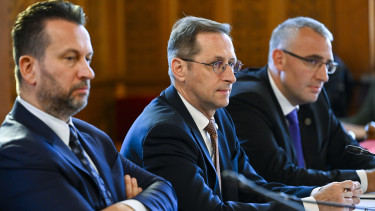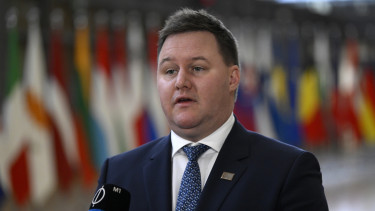Two newborns die of pertussis in Hungary, epidemiological authority acknowledges for the first time

Whooping cough is spreading at an extraordinary rate in Hungary, and we know that there have been several infant deaths linked to the disease, we wrote a month ago.
In the case of two unvaccinated infants in our country, who were transported from their homes to hospital, it was confirmed that the cause of death was pertussis and complications from pertussis,
the authority has just admitted. The NNGYK added that the greatest risk to unvaccinated newborn babies is posed by family members who meet and care for them, who may themselves be carrying the bacteria.
They continue to insist that
there is no epidemic,
but this time their argument is not that the disease has not been detected in all counties, but because
most cases are sporadic
and some cases are clustered within families.
The communication of the NNGYK as an epidemiological authority is rather peculiar. In its June statement, it said that there was no national epidemic because not all counties had suspected cases of pertussis, but now it says there is no national epidemic because the cases occur sporadically.
By now it is likely that pertussis has reached all counties based on officially reported cases. According to data published by the NNGYK (and collected by Portfolio), only Szabolcs-Szatmár-Bereg county had not reported any cases by the 28th week, so by this definition the authorities should be talking about a national outbreak.
In other words, the authority interprets the definition of a national epidemic in a relatively flexible and idiosyncratic mannger, while making no reference to the rapid accumulation of cases this year (and the extremely high number of cases in 2024) in its assessment of the epidemiological situation, although these objective indicators are the real determinants of the severity of an outbreak.
Especially if the epidemiological service does not detect these cases and follow up the accumulation of cases through contacts and order possible epidemiological action, but tracks the evolution of the cases afterwards. On this basis, the actual number of cases may be much higher.
According the the UNHCR, all diseases of outbreak potential should be assigned a corresponding alert threshold, which defines the basis upon which an outbreak should be reported.
A disease’s potential to cause an outbreak determines whether it should be under surveillance. An outbreak occurs when an infectious disease spreads rapidly to many people. An ‘alert threshold’ (or ‘epidemic threshold’) indicates the level of incidence above which a disease requires an urgent response. Every disease or condition under surveillance must have an associated case definition and a specific threshold that depends on its infectiousness, other determinants of transmission, the degree to which it is locally endemic and control strategies.
According to the International Federation of Red Cross and Red Crescent Societies, An alert threshold is the pre-defined number of alerts that suggest the beginning of a possible disease outbreak and therefore warrant immediate notification. Epidemic thresholds are the minimum number of cases indicating the beginning of a particular disease’s outbreak: (i) a single case in non-endemic areas; (ii) a cluster of pertussis cases in endemic areas.
NNGYK measures and new recommendations
The authority stresses that newborn babies should not be visited for six to eight weeks after birth, the parents should avoid crowded places with the infant and limit the number of visitors too. The infants' immune system is still partially unprotected against environmental influences and infections.
It is worth mentioning here that this is recommended by the authorities because it is infants up to around three months that are most at risk, given they receive the pertussis vaccine at 2 months of age and only then develop immunity against the infection.
The NNGYK has reminded the public that vaccination is also recommended for family members living in the same household as the infant and for those involved in the care of the infant. At present, pertussis booster shots are available in pharmacies nationwide and the availability of the vaccine is continuously monitored by the authority.
New is the NNGYK's recommendation on precautions to be taken by families with a 6-8 week old baby. The new recommendations of the NNGYK, in fact as new epidemiological measures, lead to an interesting contradictory situation in our view. On the one hand, the authority continues to deny that there is an outbreak, while on the other hand it is introducing new measures in the form of recommendations.
It is worth mentioning that the last time we sent questions to the authority was last Tuesday (for the second time), but unfortunately we did not receive any answers to our enquiries by the deadline, but the NNGYK issued the above-mentioned notice.
One of the questions we sent last week was whether the epidemiological authority could confirm the information we wrote a month ago that there had been unfortunate deaths among infants in this country.
Portfolio has been writing extensively on the subject in recent weeks:
Cover photo (for illustration purposes only): Getty Images











